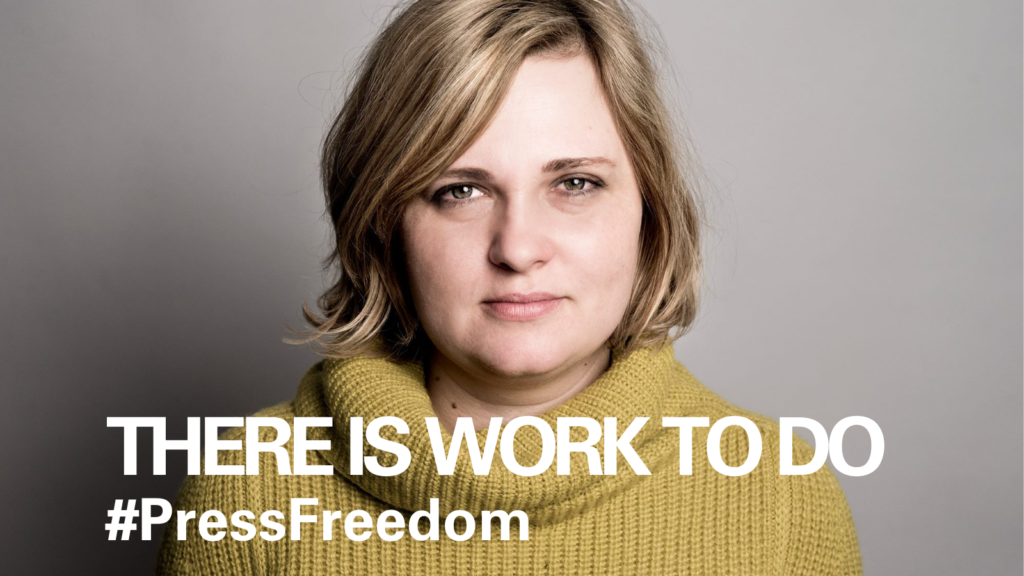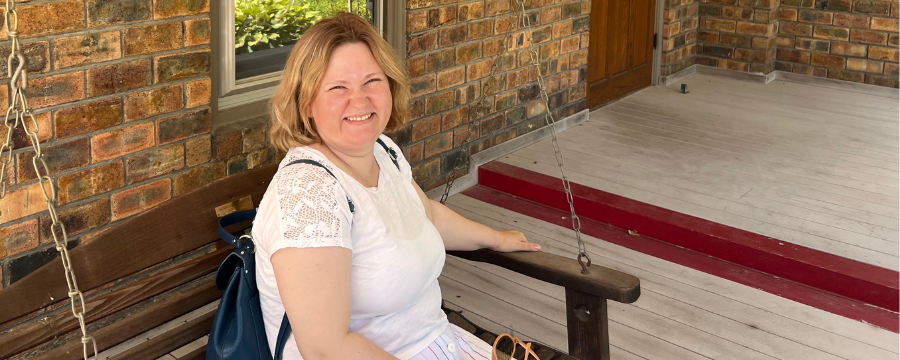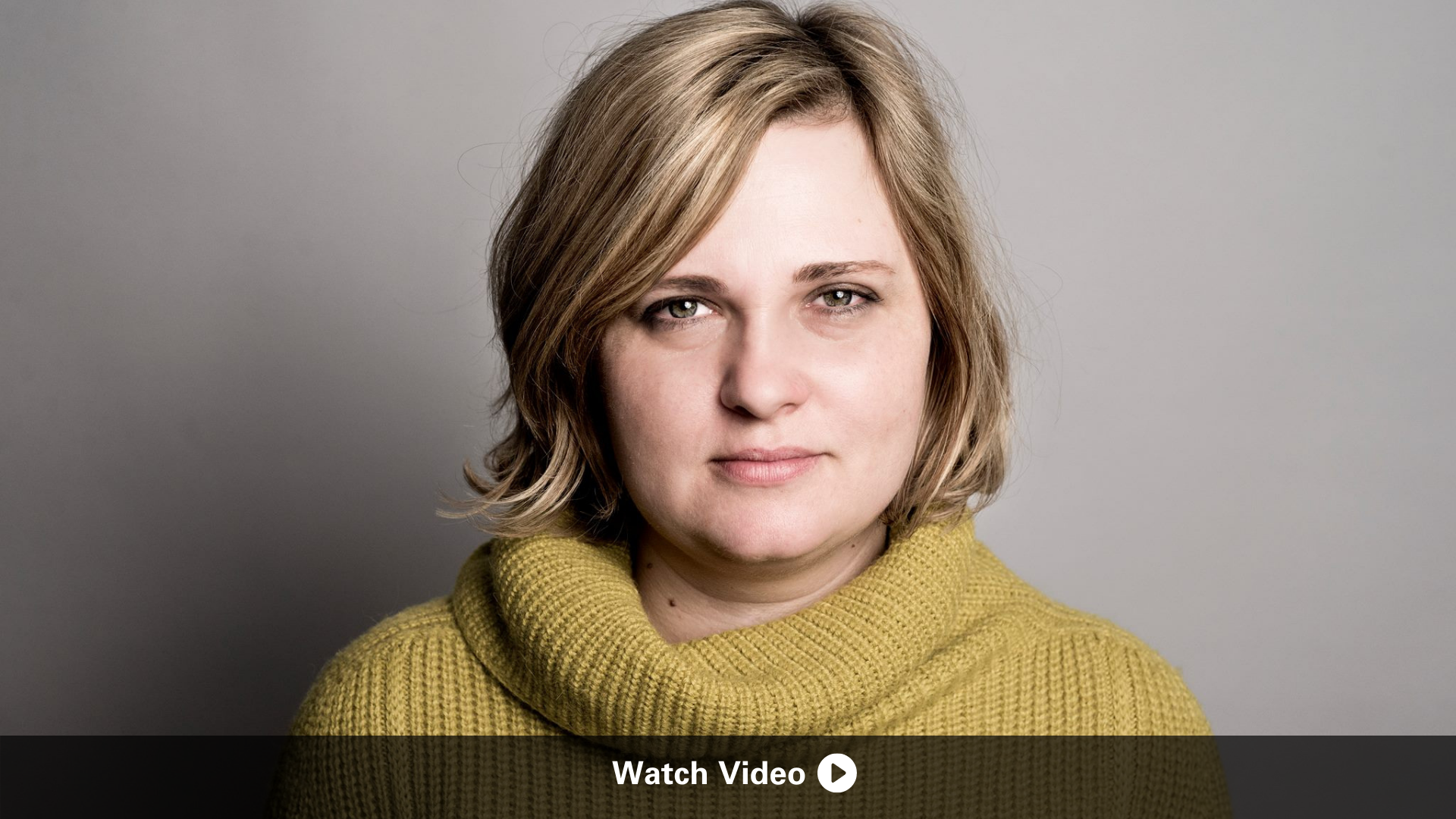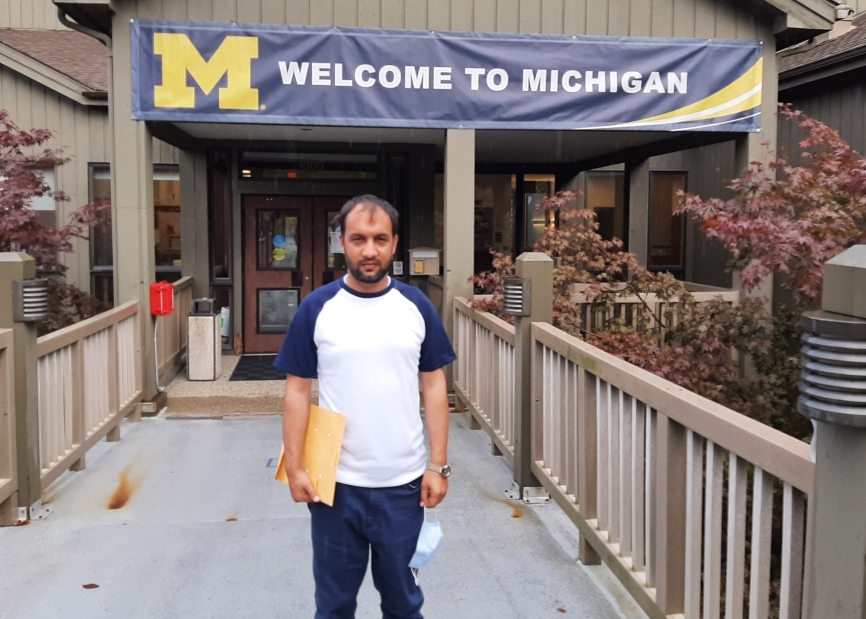A Knight-Wallace Press Freedom Fellow in Action
Zahra Nader vividly recalls the day her youngest sister was born in Kabul, Afghanistan. There was no running water in her family’s home, so Nader, then age 15, ran to get water to clean the baby — the sixth daughter in a family with only one son. She knew that the arrival of yet another girl in their male-dominated culture signaled more financial hardship for her parents. As she retrieved the water, she decided “I am going to become the boy that my family needs.”
Her loving and hardworking parents, neither of whom had the opportunity to learn to read and write, never imagined that their ambitious young daughter would become a talented writer, a New York Times reporter and a social justice-focused media entrepreneur.
Nader started publishing her poetry in high school and wrote articles for a local Afghan paper. At a private university in Kabul, she majored in law and continued to work in local journalism while studying English at a private center. She also attended a training program on how to work for international media outlets, after which she published her first English-language article in The Huffington Post about divorced women in Afghanistan.
She earned a meeting with The New York Times bureau chief in Kabul and ultimately landed a full-time job there. She reported primarily on women’s issues and gained access where male reporters could not — covering honor killings, “virginity test” facilities, households headed by single women and the social stigma of being a divorcee or a widow.
As the security situation deteriorated, Nader, her husband and her then-3-year-old son were forced to flee Afghanistan. They made a new home in Canada, where Nader struggled to chart a new path. A friend advised her that she now lives by: “You have finished one marathon in Afghanistan. You are starting another one in Canada. You always start from the beginning.” Buoyed by this encouragement, Nader applied for and was admitted to a master’s degree program and later a doctoral program in women’s studies at York University.
Shortly after that, the Taliban seized control of her homeland. Feeling compelled to act, Nader launched Zan Times, a non-profit Farsi and English online news site covering human and women’s rights in Afghanistan. (“Zan” means “woman” in Farsi.) She subsequently raised more than $30,000 through a fundraising campaign and earned some foundation grants. As the site’s editor-in-chief, Nader manages a team of mostly female journalists and editors, both in Afghanistan and in exile. She also leads the organization’s fundraising efforts and training programs for young reporters. All of her reporters are paid for their work.
As a 2025 Knight-Wallace Fellow, Nader is studying business models and management strategies that will create a roadmap for sustainability for Zan Times.
Zan Times highlights grassroots stories of suffering, courage and hope. One recent article, written by an anonymous reporter, chronicles strikes and protests organized by female public school teachers that partially succeeded in compelling the Taliban to reverse its decision to slash their salaries. Other articles cover ongoing brutality and executions by the Taliban, the struggles of Afghan female workers in Iran, novels and short stories written by Afghan authors and the life-threatening conditions faced by LGBTQ+ individuals in Afghanistan.
As a 2025 Knight-Wallace Fellow, Nader is studying business models and management strategies that will create a roadmap for sustainability for Zan Times. She was among 11 entrepreneurs selected for the esteemed Impact Studio program at the University of Michigan Ross School of Business. There, she participates in an intensive, two-semester incubator that helps innovators and entrepreneurs “bring impactful ideas to life.”
Nader is thrilled to have the opportunity for formal business coaching and loves the program’s interactive nature and the peer-to-peer learning it inspires. She is particularly eager to learn more about fundraising and marketing, with the goal of expanding the reach of the Zan Times weekly email newsletter and finding new institutional and individual donors.
After her Knight-Wallace Fellowship, Nader plans to continue leading Zan Times while concurrently finishing her Ph.D. and writing a dissertation focused on the stories of Afghan women’s rights activists from the 1960s, 1970s and 1980s. She will keep tackling new challenges and running new marathons. “It’s very important to me,” Nader says. “A lot of my relatives — especially the girls and my nieces — everybody’s looking up to me.”
The Zan Times English-language website can be viewed at zantimes.com.
Ashley Bates is associate director of Wallace House Center for Journalists.
This article appeared in the Fall 2024 issue of the Wallace House Journal.









